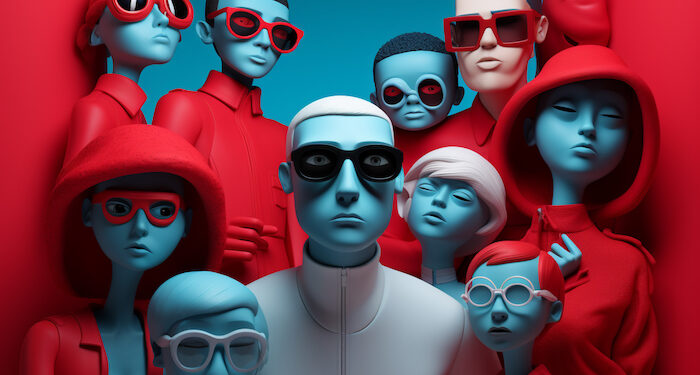“People don’t buy what you do; they buy why you do it.” – Simon Sinek. In my previous article, The Shift from B2C to B2Me, I unpacked how modern consumers are no longer just segments on a spreadsheet or profiles in a presentation deck. They’re individuals who are hyper-distracted, hyper-connected and hyper-choosy.
Brands today aren’t just competing for attention; they’re competing for relevance, resonance and trust.
This follow-up article goes deeper. If B2Me was the wake-up call, this article is the next step: a call for brands to stop with the hype and superficial performance, kill the algorithm-chasing and bring back the one thing that made marketing powerful in the first place: humanity.
Marketing’s existential crisis
We’re living through what some have called the “creative recession”. Scroll through your feed and you’ll find templated ads, recycled tropes and influencer campaigns that feel more automated than authentic. The culprit? A dangerous shift in how influencers, brands and agencies create.
Instead of crafting ideas that move people, we’re making content that feeds algorithms. We’re optimising for reach, not relevance. Engagement, not emotion. Volume, not value.
But here’s the uncomfortable truth: you can’t algorithm your way into people’s hearts.
When marketers prioritise metrics over meaning, brands lose the very thing that made them distinct—their voice, values, and visceral connection with real people. In chasing clicks, we’re abandoning the craft of brand building.
B2Me was never the end game
The B2Me revolution was never about pandering to every consumer whim. It was about personalisation with purpose. It was about seeing people as people, not personas.
But even ‘B2Me’ has become vulnerable to misinterpretation. Some brands took it to mean hyper-targeted sales content or overly familiar messaging (“Hey Jody, still thinking about those hiking boots?”). But true personalisation isn’t about adding names to emails or bombarding customers with retargeted ads. It’s about relevance, empathy and solving real problems.
Instead we should be crafting brands that connects so deep, that feels so personal that it feels human.
That’s right, this is the next evolution: human brands.
What is a human brand?
A human brand doesn’t just look at consumers through the lens of data, it looks at them with empathy. It asks:
- What problem are we solving?
- How can we show up meaningfully in people’s lives?
Human brands
- Are we building trust, or just tracking behaviour?
- Speak with honesty, not hype.
- Create value before extracting it.
- Earn loyalty through integrity, not gimmicks.
- Show up consistently, even when there’s no promotion to push.
They’re brands that understand people don’t wake up thinking about products. People wake up with real problems to solve, needs to meet and lives to live.
For CMOs, CEOs and agencies: This is your strategic moment
The shift toward human brands isn’t just a creative philosophy, it’s a strategic imperative.
For CMOs: This is your opportunity to rebuild marketing’s seat at the leadership table. Move beyond comms and campaigns. Become the voice of the customer in the boardroom. Champion brand as a long-term asset, not a short-term lever.
For CEOs: Your brand is no longer just a logo or a tagline, it’s your company’s operating system. If your values, culture, and customer experience don’t align, the market will smell the disconnect.
For entrepreneurs: You don’t need the biggest budget to build the biggest brand. You need clarity, consistency and a commitment to solving real problems.
For agencies: The era of just delivering clever brand assets, attractive social media reels or just being a route to market activation arm is over. Clients need strategy, truth-telling, and partnership. Not content mills.
The takeaway: Create what algorithms can’t
As we move deeper into an AI-driven world, the question becomes: What will set your brand apart when everyone has access to the same tech, tools and data?
The answer: Humanity.
You can’t automate emotional intelligence (yet). You can’t templatise meaning. And you definitely can’t scale love.
The brands that win in the future won’t be the loudest. They’ll be the most human.
That’s the real evolution: from B2C to B2Me to human brands.
Let’s stop chasing impressions and start making one.
 Jody Daniels is a brand strategist, thought leader, and business change agent. With a sharp eye on culture and an unrelenting focus on relevance, he helps businesses translate deep consumer insights into growth strategies that convert and connect. Daniels is currently strategy director at Rapt Creative and Mortimer Harvey, and a published author of Deconstructing Design Thinking. Follow his thought-provoking takes on strategy and culture in his LinkedIn newsletter Cup of Jo Leadership Chronicle.
Jody Daniels is a brand strategist, thought leader, and business change agent. With a sharp eye on culture and an unrelenting focus on relevance, he helps businesses translate deep consumer insights into growth strategies that convert and connect. Daniels is currently strategy director at Rapt Creative and Mortimer Harvey, and a published author of Deconstructing Design Thinking. Follow his thought-provoking takes on strategy and culture in his LinkedIn newsletter Cup of Jo Leadership Chronicle.














